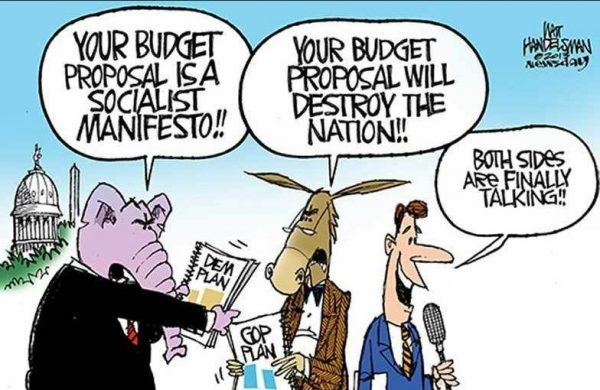Recent analysis indicates that Medicare finances are worsening and will become insolvent in 2026, while any attempts to reform and save it are met with accusations of hating the poor and hurting the most vulnerable. In trying to roll back onerous Obamacare requirements, think tank analysts say it will “hurt [the] most vulnerable citizens.” The Southern Poverty Law Center posits that immigration reform will hurt “the most vulnerable.” These instances are examples of a larger trend where politicians are excellent at making arguments that sound very attractive while at the same time making their opponents sound like cruel idiots. They are usually promoted by those who want to spend more on social programs, but they really become a club to beat political opponents and prevent meaningful reform.
Assuming that the government should help, there is little indication that social programs do help. As Thomas Sowell succinctly pointed out, the safety net produces perverse incentives that end up paying people to fail and subsidizing their counterproductive choices. Some analysts call this effect the “benefit cliff,” because as people get jobs, make money, and succeed, they start to lose those often handsome government benefits. Higher minimum wages, for example, are sold to the public as a way to help workers, but the additional pay often disqualifies them for things like child care, the additional cost of which actually burdens the worker who was supposed to be helped. The Cato Institute found that the various benefits offered by the government can equal a 22-dollar-an-hour job, which means that new workers trying to climb the ladder of success often abandon comparatively lucrative benefits when they start a job.
I have personal experience being penalized for success and hurt when trying to be helped by the government. The Affordable Care Act made my new insurance too expensive, forcing me onto government-provided health care. But the health care regulations dictate that they will not cover almost 80,000 dollars in medical bills because I made 50 dollars too much in the month of my surgery. It hurts, almost as much as the appendectomy scars, to know that my extra effort and hard work disqualified me from the help I needed. In short, my benefit cliff was almost 100 grand high and yet politicians continue to say that without these programs the “most vulnerable” will suffer.
Despite evidence that these programs often don’t succeed in their stated goals, many politicians and groups insist that reform is cruel and hurts the poor, and that these programs need more money. A day doesn’t go by in my home state when somebody isn’t asking for more money on behalf of the most vulnerable. Basic math tells us that the government just can’t afford current levels of spending and that something must change or nobody will get help. The government has more than 21 trillion dollars in debt, a trillion dollar budget deficit, and that is before you consider over 210 trillion dollars in unfunded liabilities (such as those that are crippling Oregon and Indiana).

Some modest adjustments could save the programs and restore fiscal health. A few solutions to Medicare include means testing, indexing benefits according to life expectancy, and saving costs through virtual and home care. But the rhetoric about the most vulnerable will continue to stymie reform, with every passing day making it more difficult and painful when the changes are forced on us by finances. (Also notice the rhetoric in the first sentence of the last link). Immigration reform will help vulnerable children be protected from human and sex traffickers whose services are often employed trying to cross the border. Welfare reform would stop subsidizing counterproductive behavior and producing a benefits cliff. And opposing the Affordable Care Act actually removes onerous burdens put on the most vulnerable (because despite its name, it drastically raises the cost of health care and then penalizes citizens for not having it).
The lack of real solutions makes us all vulnerable to financial catastrophe, makes immigrants rely on illegal means to enter the country, and burdens those trying to find affordable health care. But the rhetoric of “the most vulnerable” will continue to defend the burdensome policies and the welfare state anyway.
















